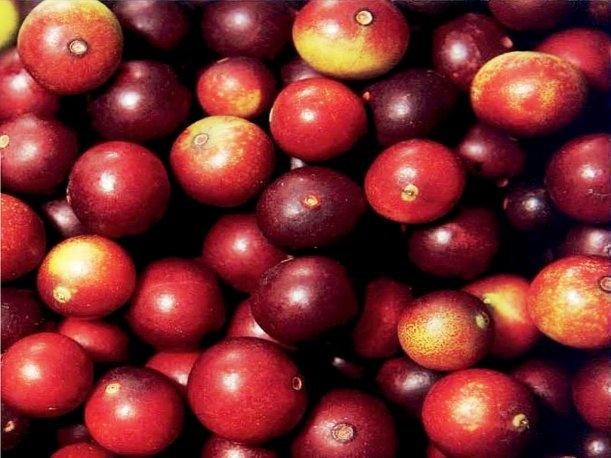Superfood Overview : Buckwheat | ||
|---|---|---|
| Nnutrition Fact: | 343 cal, 13g protein, 3g fat, 11g fiber | |
| Best Combine Buckwheat with: | Pancakes, salads, stir-fries | |
| Suggested Serving | 1/2 cup cooked buckwheat | |
| Benefits : | Protein and fiber boost, gluten-free, gut health, blood sugar control | |
| Risks : |
| |
| Who Should Avoid Bucketwheat : |
| |
| Buckwheat Health Benefits and Disease Prevention:: |
| |
buckwheat is the latest nutritional powerhouse grain gaining superfood status. Despite its name, buckwheat is not actually related to wheat at all – it’s a seed from a flowering plant related to rhubarb and sorrel. Boasting significant amounts of protein, fiber, minerals, antioxidants, and polyphenols, buckwheat has a lot to offer.
A highly nutritious, gluten-free alternative to traditional grains, buckwheat is rich in manganese, magnesium, copper, and phosphorus. It also contains high quality protein containing all eight essential amino acids, making it unusual among plant foods. The fiber in buckwheat may help lower cholesterol and slow sugar absorption, aiding diabetes management and weight control.
The high antioxidant content of buckwheat gives it anti-inflammatory and anti-cancer benefits. In particular, buckwheat contains high levels of rutin, a flavonoid with powerful anti-inflammatory properties that helps strengthen blood vessels. Research indicates rutin may have protective effects against heart disease, certain cancers, and cognitive conditions.
Taking buckwheat might lower some markers of heart disease, including cholesterol, triglycerides, and blood sugar in people who are healthy or those with diabetes or high cholesterol.
source:https://www.webmd.com/vitamins/ai/ingredientmono-15/buckwheat
The nutty, earthy flavor of buckwheat pairs well with all types of cuisines from soba noodles in Japanese cooking to kasha pilafs in Eastern European food. It can also be enjoyed as porridge or even buckwheat pancakes for a healthy breakfast.
Easy to cook and highly versatile, buckwheat is an ancient grain getting modern recognition for its superb nutritional profile. With significant protein, antioxidants, minerals, and vitamins, as well as versatile applications in cuisine, buckwheat definitely deserves to be highlighted among superfoods for its stellar nutrition and health benefits.
Key Takeaway Superfood : Buckwheat
Rich in Nutrients:
Buckwheat boasts a diverse range of essential nutrients, including high-quality protein with all nine essential amino acids. It delivers fiber, B-complex vitamins (folate, niacin), and essential minerals (magnesium, manganese, phosphorus), making it an ideal choice for overall well-being.
Gluten-Free Goodness:
Naturally gluten-free, buckwheat emerges as an excellent option for those with gluten sensitivities or celiac disease. Its adaptability allows for the creation of gluten-free flour, offering a wholesome alternative without compromising on taste or texture.
Heart Health Champion:
Buckwheat’s heart-protective properties shine through rutin, an antioxidant flavonoid that may lower blood pressure. Its fiber content contributes to reduced cholesterol levels, promoting cardiovascular well-being.
Blood Sugar Regulation:
With a low glycemic index, buckwheat has minimal impact on blood sugar, making it a favorable choice for diabetes management. The fiber and magnesium content enhances insulin sensitivity for improved blood sugar control.
Aids Digestive Health:
High in fiber, buckwheat supports digestive health by promoting regular bowel movements and acting as a prebiotic, nourishing beneficial gut bacteria for a healthy microbiome.
Antioxidant Powerhouse:
Abundant in antioxidants, including quercetin and rutin, buckwheat neutralizes free radicals, guarding cells against oxidative stress and inflammation. Its antioxidant content contributes to a reduced risk of chronic diseases.
Weight Management Ally:
The combination of protein and fiber in buckwheat induces a feeling of fullness, making it a satisfying addition to meals. Incorporating buckwheat may aid in weight management by reducing overall calorie intake and curbing unhealthy snacking.
Conclusion:
Integrating buckwheat into your diet is a flavorful and healthful choice. Whether enjoyed as groats, flour, or noodles, this superfood offers a wide array of benefits, from heart health to digestive support. Buckwheat, with its versatility and nutrition, stands as a valuable addition to any balanced diet. Embrace the power of buckwheat and elevate your nutritional intake to new heights for a healthier and more vibrant life.




